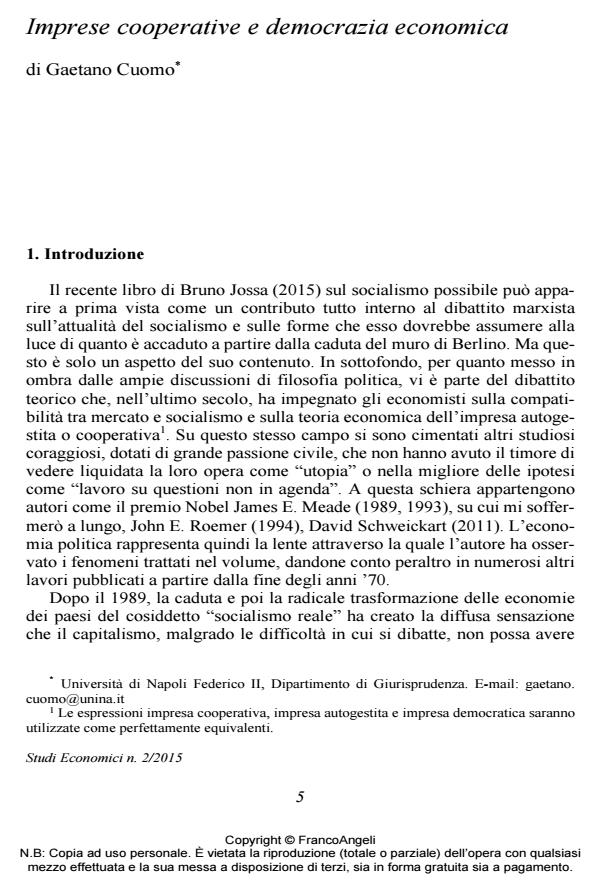Imprese cooperative e democrazia economica
Titolo Rivista STUDI ECONOMICI
Autori/Curatori Gaetano Cuomo
Anno di pubblicazione 2016 Fascicolo 2015/116
Lingua Italiano Numero pagine 34 P. 5-38 Dimensione file 291 KB
DOI 10.3280/STE2015-116001
Il DOI è il codice a barre della proprietà intellettuale: per saperne di più
clicca qui
Qui sotto puoi vedere in anteprima la prima pagina di questo articolo.
Se questo articolo ti interessa, lo puoi acquistare (e scaricare in formato pdf) seguendo le facili indicazioni per acquistare il download credit. Acquista Download Credits per scaricare questo Articolo in formato PDF

FrancoAngeli è membro della Publishers International Linking Association, Inc (PILA), associazione indipendente e non profit per facilitare (attraverso i servizi tecnologici implementati da CrossRef.org) l’accesso degli studiosi ai contenuti digitali nelle pubblicazioni professionali e scientifiche.
In a recently published book, Bruno Jossa (2015) proposed an economic system composed mainly of co-operative firms (democratic enterprises), where means of production are publicly owned and wage labour is forbidden. Jossa argues that a system of co-operative firms, not a system of planned economy, is the true socialism, fully compatible with the letter of Marx’s writings. Jossa’s proposal is compared with that of Meade (1989, 1993) involved in the use of a special kind of co-operative, DLCP, defined as a firm in which workers and capitalists negotiate an agreement which fixes the firm’s profit appropriation criterion and provides for the issuance of two different categories of shares, labour shares and capital shares. Meade’s project also provides a large state intervention in the economy. Both proposals lead, according to their authors, to reduce unemployment and to an improvement in the material and moral condition of individuals. Strengths and weaknesses of the two proposals are highlighted.
Parole chiave:Imprese cooperative, socialismo, governance; Labour-managed firm; socialism; governance.
Jel codes:P13; P20; L20; G34.
Gaetano Cuomo, Imprese cooperative e democrazia economica in "STUDI ECONOMICI " 116/2015, pp 5-38, DOI: 10.3280/STE2015-116001